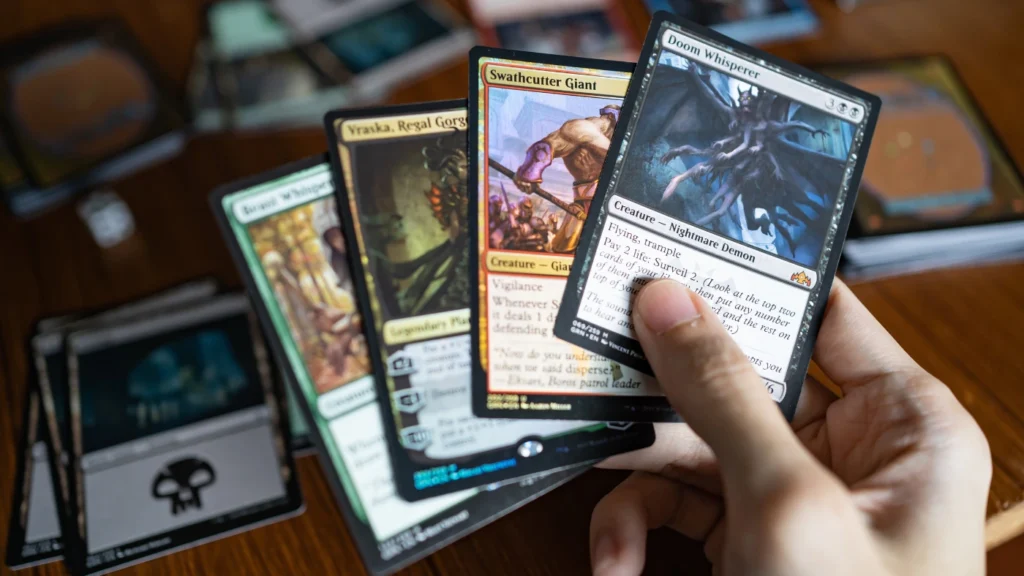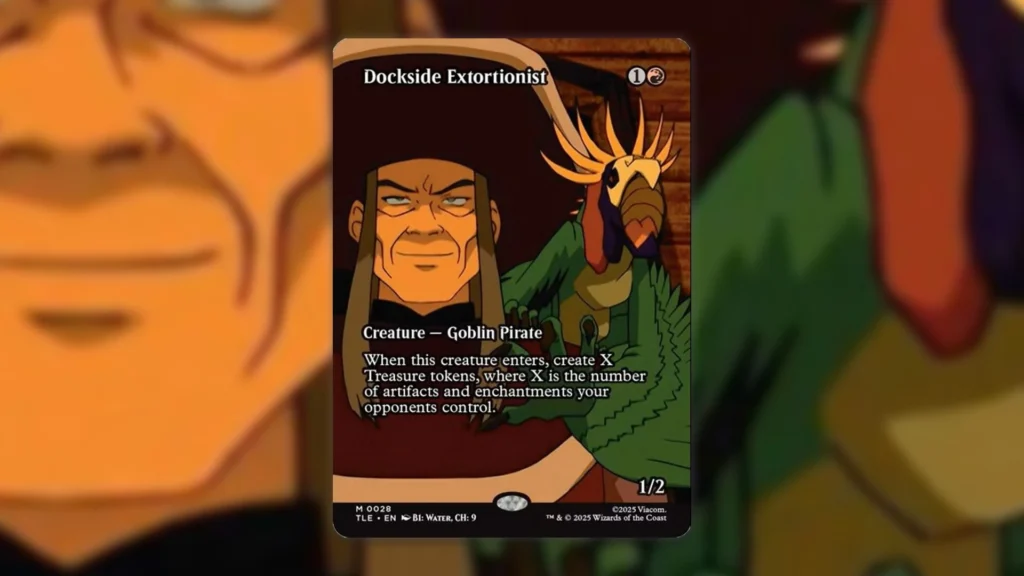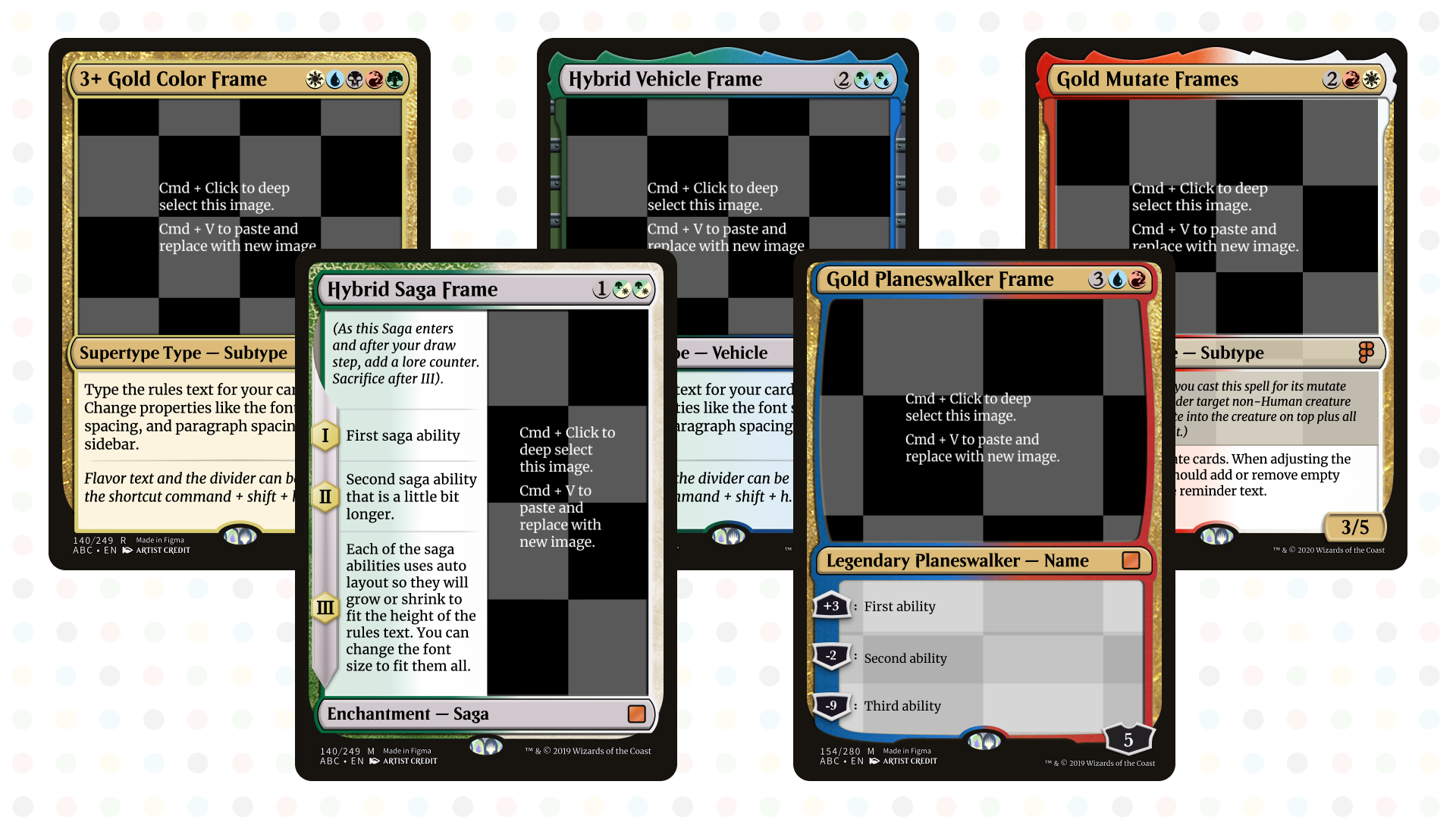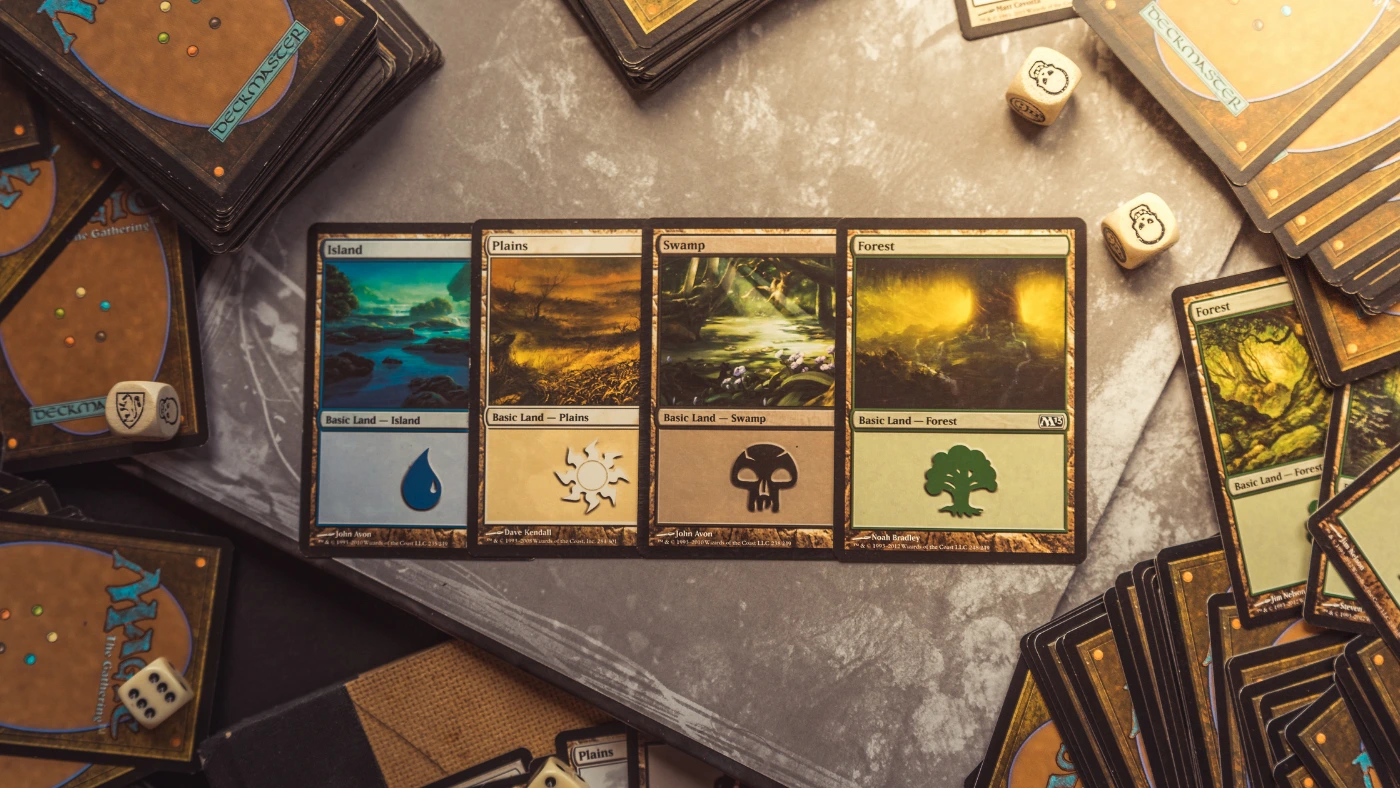Proxies are one of those topics that can turn a friendly table into a debate club in under a minute. Some people hear “proxy” and immediately picture bootlegs and scams. Others think “sharpied basic land for testing a deck before Friday.” If you’re new and you’ve been told proxies are always illegal, always unethical, or always hated, I get why you’d bounce. The truth is a lot simpler—and less dramatic—once you separate policy, ethics, and expectations. Here’s how it actually works.
1) “Proxies are just counterfeits.”
No. That’s the first—and biggest—mix‑up.
A counterfeit tries to pass as a real card. It’s made to deceive and it’s illegal. A proxy (in common use) or “playtest card” is a clearly non‑authentic stand‑in you use when you don’t have the real copy handy (or don’t want to risk it getting beat up). Wizards of the Coast’s own materials draw a bright line here: WPN store terms explicitly forbid counterfeits, define them as unauthorized reproductions, and, separately, explain what “playtest cards” are. Those playtest cards are homemade stand‑ins for personal, non‑commercial use, often a basic land with a name written on it. That’s a very different thing from a fake printed to fool someone.
Wizards even addressed the confusion years ago: sanctioned events require authentic cards; outside sanctioned play, they have “no desire to police playtest cards made for personal, non‑commercial use, even if that usage takes place in a store.” That line alone undercuts the “proxy = counterfeit” myth. Intent and presentation matter. If it’s pretending to be real to trick someone, it’s a counterfeit. If it’s clearly a stand‑in used openly for casual or testing, it’s a proxy/playtest card.
2) “Proxies aren’t allowed anywhere.”
This is the policy tangle that scares new players away, and it doesn’t need to.
In sanctioned tournaments (the ones that report results to Wizards), the rule is strict: you must use real, authorized cards. There’s a narrow exception—if a card gets damaged during the event, the Head Judge can issue a marked “proxy” to keep the match going, and it only lasts for that tournament. No, you can’t make your own tournament proxies; only the Head Judge can, and only in specific cases. That’s not hearsay—that’s codified in the Magic Tournament Rules (MTR §3.4).
But sanctioned tournament policy is not the whole world. Local stores also run unsanctioned play—Commander nights, league play, testing meetups, one‑off events that aren’t reported—and Wizards’ own WPN terms explicitly allow playtest cards in stores for non‑commercial use during unsanctioned events. That’s the opposite of a blanket ban; it’s formal permission for the thing most people mean by “proxies” in casual play. The 2016 Wizards article says the quiet part out loud too: personal, non‑commercial playtest cards aren’t being policed. Talk to your store, read the event description, and you’ll know what flies for that night.
3) “Proxies kill the game’s economy.”
This one sounds plausible until you look at how Wizards frames Magic and how the secondary market actually gets shaped.
Wizards says, in its official Reprint Policy, that Magic is a strategy game first and foremost—and they reprint cards to help people play. That policy exists alongside the Reserved List promise not to reprint certain old cards in tournament‑legal form. The point is: Wizards already juggles collectability and access within official printing. Proxies (as in clearly non‑authentic playtest cards) used casually aren’t part of that print/reprint equation at all. They’re not entering the market, they’re not being sold as real, and they don’t touch sanctioned play.
If anything, proxies help newer players try strategies before they buy into them, keep older players from shuffling a $200 card into oblivion, and lower the stress ceiling at casual tables. Stores still sell sleeves, dice, snacks, precons, and the sealed product people enjoy cracking. Wizards still sells sets because the official cards are the only things legal in sanctioned play and the only things collectors want. What absolutely does hurt the game’s economy is counterfeiting, which Wizards bans outright, with WPN membership consequences for stores that knowingly facilitate it. Proxies don’t require deception; counterfeits do. There’s a real difference.
4) “Proxies ruin casual play.”
Sometimes they do… if no one talks first. Most of the time, they actually smooth things over.
Commander (the most proxy‑adjacent format in practice) is built on a social contract and a “Rule Zero” conversation: before the game, the table sets expectations—power level, combos, speed, and yes, whether proxies are okay. The Commander Rules Committee’s own FAQ emphasizes that groups decide what’s fun for them, and they stress the quick pre‑game conversation that keeps everyone aligned. That same FAQ also says the baseline is official cards only; if you want to deviate, you do it with group consent. Which is exactly how proxies should enter a game: openly and by agreement.
In practice, most objection to proxies is really about two avoidable problems: unclear card info (someone scribbled “That Big Blue Thing” and no one knows what it does), and perceived power spikes (“three turn‑one Mana Crypts” energy). Fix both and proxies stop being a headache. Make them legible. Keep the power conversation honest. If a pod is playing lower‑powered precons, don’t roll up with a proxied turbo combo deck and call it “casual.” That’s not a proxy problem; that’s a mismatch problem.
5) “Proxying is lazy or dishonest.”
In my experience, it’s usually the opposite: it’s careful and transparent.
People proxy to test a deck before spending money on it. They proxy to protect expensive foils from wear. They proxy because a card is hard to find, or because they want to try a goofy brew for a night without committing. None of that is lazy; it’s responsible. And it’s not dishonest if you’re clear about it and the table agrees.
Even at the most official end of the spectrum—sanctioned tournaments—judges will issue a tournament‑legal proxy when a card is damaged during the event or when a foil has no non‑foil printing and creates a marking issue. That narrow, judge‑issued proxy is there to preserve fairness and readability, not to cheat anyone. If Wizards’ own tournament policy accepts that a stand‑in can be the least bad, most fair solution in a pinch, it’s hard to argue that every proxy, in every context, is somehow unethical. The context is what matters.
A few practical notes (for smoother tables)
Keep it simple and human. Tell your pod you’re using proxies. Make them clear and readable so opponents don’t have to guess. And match your deck’s vibe to the table—if folks are jamming precons, maybe leave the proxied fast‑mana pile for a different night.
Bottom line:
“Proxy” gets used as a catch‑all, which is how the arguments start. But policy is clear enough once you separate terms. In sanctioned play, you need real cards, with the rare judge‑issued proxy only for damaged or foil‑only edge cases. In unsanctioned store events and kitchen‑table Magic, playtest cards are fine when they’re not sold as real and when your group or store says yes. Counterfeits—the things trying to pass as real—are banned, full stop. Have the pre‑game conversation, be transparent, and keep your cards legible. If you do that, proxies stop being scary and start being what they’re supposed to be: a tool to help more people play more Magic.
Sources for clarity and policy:
Magic Tournament Rules §3.4 (judge‑issued proxies only; damaged/foil‑only cases). Wizards of the Coast
WPN Terms & Conditions (counterfeits prohibited; playtest cards allowed for non‑commercial use in unsanctioned store events). Wizards Play Network
Wizards announcement on proxies (sanctioned = authentic cards; no desire to police personal, non‑commercial playtest cards—even in stores). MAGIC: THE GATHERING
Commander Rules Committee FAQ (Rule Zero, social contract; default to official cards unless the group agrees otherwise). MTG Commander
Official Reprint Policy (how Wizards balances play access and collectability). MAGIC: THE GATHERING
If you’ve heard the scary takes and felt put off, that’s fair. But you don’t need to sit out. Ask the table, keep it clear, and play.





